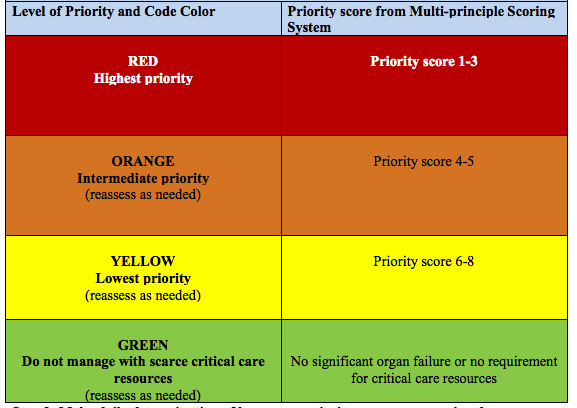transparent, and objective as possible, and must be based on biological factors related only to the likelihood and magnitude of benefit from the medical resources."
bearing on the likelihood or magnitude of benefit, including but not limited to race, disability,
gender, sexual orientation, gender identity, ethnicity, ability to pay, socioeconomic status,
perceived social worth, perceived quality of life..
Why is this a problem?
Well, an algorithm is a set of rules to be followed in calculations or other problem-solving operations.
Here is how the proposed Crisis Standards of Care algorithm works:
1. Calculat[e] each patient’s priority score based on the multi-principle allocation framework;
2. Assign each patient to a [color coded] priority group;
3. Determin[e] on a frequent basis how many priority groups will receive access to critical care.
2. Assigning each patient to a priority group (to which hospitals may assign color codes); and
3. Determining on a frequent basis how many priority groups will receive access to critical care interventions." src="/images/1px.png" data-src="https://pbs.twimg.com/media/EVgrgyeXQAMUj-Z.png">
most life-years."
1) Just and ethical crisis standards that take into account political and social determinants of health to assure truly equitable allocation of resources;
Please read the rest for yourself: docs.google.com/document/d/13k…
/end




